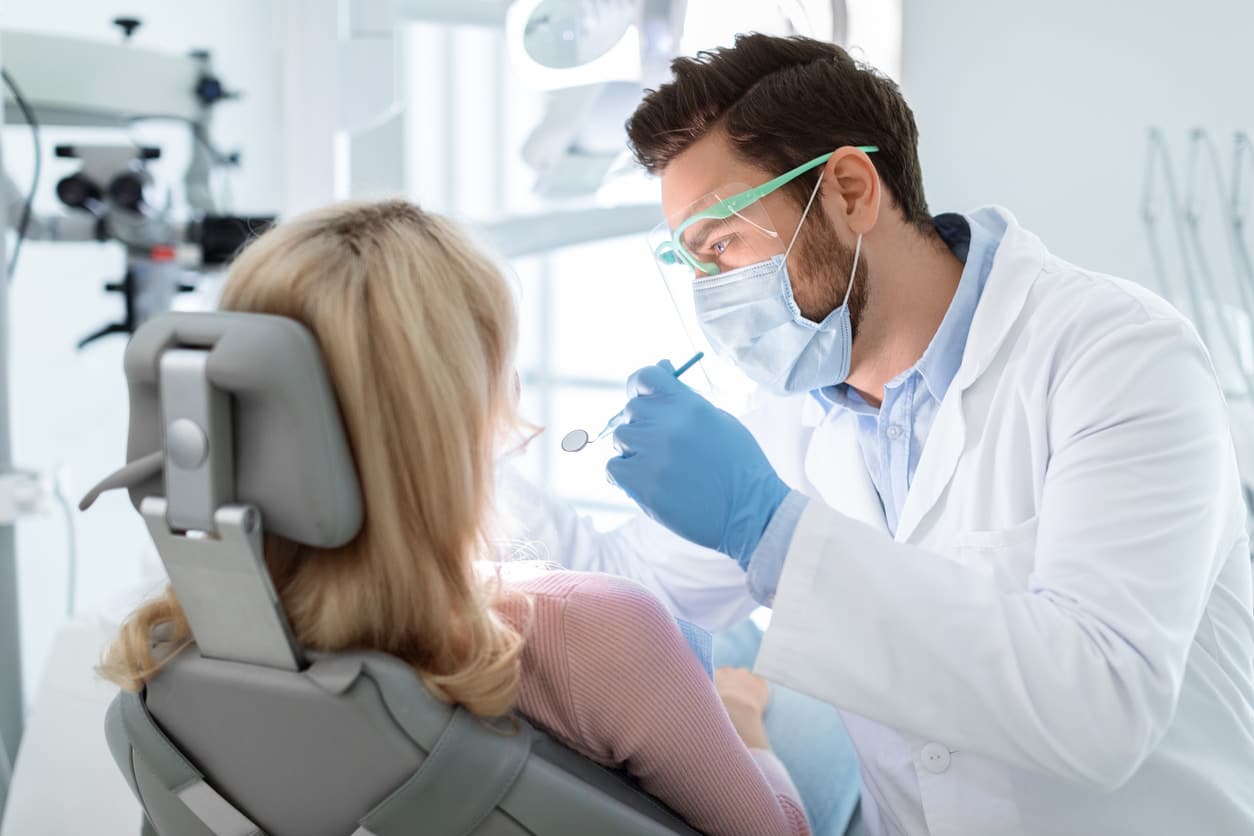
Dentistry is More Than Your Teeth
Sara knew something was wrong.
The pain in her mouth wasn’t improving, and after a year of hoping it would get better, she knew it was well past time for help. She decided to see Dr. Andy Engel of Living Dental Health.
Through his exam, Dr. Andy discovered that Sara had a failed root canal. Because she waited so long to treat it, the bony ridge that supports her tooth developed a hole. Her treatment options included a denture, which she would have to remove anytime she wanted to eat, or a bridge, which would impact three teeth instead of one. Both options weren’t ideal. But Dr. Andy felt there was another option. He felt confident that he could repair it with a dental implant, but first, he had to address the compromised bone and tissue.
Adequate bone in the jaw is needed to support the implant, and Dr. Andy needed to repair the hole caused by the infection. His treatment used a combination of tissue and bone grafting and Goretex membranes for healing. The implant was completed, and Sara couldn’t be happier, but cases like hers don’t always end up with a happy ending.
When the average person thinks about dentistry, they think of teeth and gums. But the bones that make up the jaw are equally vital. Think of them as the foundation of your dental health, and without a strong foundation, dental issues become challenging to fix.
“Without bone, your options become very limited,” said Dr. Andy. “It used to be that if teeth failed, they would pull them out and give the person dentures.”
But advances in technology have made this approach archaic, especially for dentists like Dr. Andy. His advice to you: take care of your teeth, and by doing so, you’ll take care of the bones that support them.
Periodontal Probing and Oral Hygiene
The best way to care for your teeth is through good oral hygiene. This means flossing daily and brushing twice a day. If you don’t, tartar builds up, inflaming the tissue and resulting in bone loss.
Good hygiene means visiting the dentist twice a year for a cleaning and examination. During a cleaning, you’ve probably heard them say numbers while probing your gumline and wondered what in the world they were doing. These numbers indicate periodontal health or gum recession. Anything between one to three is considered healthy. When you have four or greater, you are starting to lose bone and tissue around the teeth. Once these are gone, surgery is the only way to restore them.
The Conundrum Between Modern Medicine, Cancer, and Oral Health
Medical advancements have allowed us to do some amazing things. But these advancements can cause problems in other areas of the body. A perfect example of this is radiation and chemotherapy, which put the person receiving treatment at a greater risk of having an oral infection. That’s why it is essential to see your dentist more often to ensure your oral health doesn’t worsen. Dr. Andy recommends that people undergoing cancer treatments consider using CariFree as it addresses the pH levels in the mouth, replenishing lost minerals in the tooth’s structure. He also recommends drinking plenty of water to combat dry mouth, eating a low sugar and acid diet, and using a Sonicare toothbrush.
Some medical conditions can compromise bone health, such as certain cancer treatments and even osteoporosis. Plus, many medications cause dry mouth. A dry mouth can lead to cavities because saliva helps wash away bacteria and food particles. Radiation and chemotherapy, in particular, can result in a higher chance of infection.
The moral of the story – dentistry is more than your teeth. So, the next time you brush and floss your teeth, consider the fact that you’re also ensuring the health of the bones that support them too.
